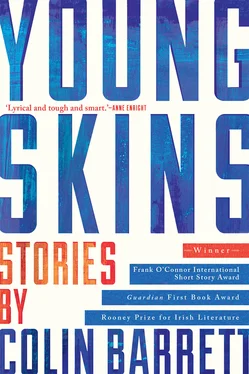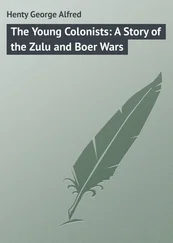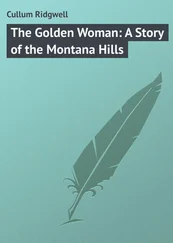‘Over here,’ Arm said.
He gestured and the widow took up a roll and handed it to him. Arm uncinched the band and the notes sprang open. The distinctive weathered smell of paper currency hit his nostrils. Arm snatched a tenner and held it close. A tenner, but it was coloured in green and brown, and then Arm noted the pound sign imprinted in its corner; it was not ten euro, it was ten Irish pounds. Arm flipped through the other tens. They were all pounds.
‘This is old money,’ he said.
The widow was still on her knees in front of him, a hand resting absently, familiarly, on his knee. This disquieted him. Her hand was still cold. The widow said nothing.
‘This is pounds,’ Arm went on, ‘this is no good. This money’s gone. It’s done.’
‘It’s all there is,’ she said, ‘take it all off away with you,’ and she offered him another banded bundle of pound notes. Arm went to stand up, fell forward onto his knees. Now the widow was over him, her hands on his shoulders.
‘Steady. What are you at now?’
‘I’m getting out of here. Hands off me.’ Arm was piling the notes back into the case. He closed the lid and hefted the case under his arm.
‘You’re in no fit state for anything. Lie back down,’ the widow said.
Arm pointed the hammer at her.
‘Downstairs. Come on.’
Hector was still on the sitting-room floor, umoving. Arm loped in and bent to his body. He slapped the man’s thighs, dug a hand into the pockets of his trousers, chanting all the time, ‘Don’t move, don’t move, don’t move.’ He carried back a set of keys to the widow, standing in the hall.
‘Let’s go,’ Arm said.
‘Where?’ the widow said.
‘You’re taking me home.’
It seemed like hours later when Arm woke again, a dried sweat on his forehead. The case of dead money was angled across his lap, and beside him in the driver’s seat the widow stared implacably ahead with both hands fixed on the Hiace’s steering wheel. Sounds of grinding metallic protest drifted up out of the depths of the van as they trundled along a lightless road. Arm looked out the side window. The night sky looked like something precious and crystalline had been smashed repeatedly against it.
‘We on the right track?’
‘It’s a hospital we need to get you to, not home,’ the widow said.
When Arm said nothing she said, ‘I know this country. I have not driven in a long time and I have not ever driven a vehicle as burly as this contraption, but I know this country.’
‘Just land me where I say. The town and that’s it.’
‘There’ll be trouble,’ the widow said. ‘Home’s the first place they’ll find you.’
‘Don’t mind any of that.’
‘A doctor, at least, Douglas, it will—‘
‘No.’
‘You have to think of the others,’ the widow said.
‘What others?’
‘The people in your life. Your family, Douglas. They will want you around.’
Arm’s head was burning. He pressed it against the glass of the passenger window. To shut her up he said, ‘I don’t give a fuck about anyone but myself.’
‘Now I don’t think that can be true at all, Douglas,’ the widow said, ‘not at all.’
When Arm again refused to respond, the widow continued.
‘I had a brother who died, in the end, of stubbornness. This was almost fifty years ago now. Tommy. My father kept horses, and Tommy used to break them in. He was the second oldest in the family, twenty-two, and I was the youngest, only eight at the time. One day Tommy came back in from the paddocks and into the kitchen as pale as a sheet, straw in his hair and on his clothes. Bewilderment in his eyes. My mother asked him what had happened and he was embarrassed, initially, to explain, but eventually admitted that a colt had managed to fall over on top of him. He’d been leading it around the paddock by a tether, one of the big, distemperate beasts, and in the business of restraining it the colt had somehow dropped down sideways on top of him, flattening him right into the ground. Tommy was shook and drawn, but he wouldn’t hear of seeing a doctor. He was a strapping lad. He trotted in his boots around the kitchen and sat down at the table. He was grimacing a bit, but he seemed otherwise fine, so I suppose my mother believed him when he said he was okay. To prove his health he asked for a glass of milk, gulped it down, wiped his mouth with the back of his hand and just sat there and chatted away, about what I don’t even remember, just the local gossip with my mother as she was making the dinner. Then he said he might go for a lie down. This wasn’t unusual as he’d been up since before six and the evening was coming on. Tommy went in to his room and a little while after I took a notion and went in after him. He was staring up at the ceiling, blanket to his neck. His lips were white and they were stuck to his teeth, but his eyes were open. I asked him was he feeling okay and he continued to insist he was fine, just tired, though by now my mother had considered matters again and was making plans to get the doctor. But it was too late. Tommy just dropped off into a sleep, and he did not wake up.’
Presently the widow saw the lights of Ballintober approaching. With a neat satisfaction, she eased the boxy, ponderously responsive vehicle into the forecourt of the petrol station. She cut the engine and stepped down into the cool of the night and walked across the empty street, into the only building that appeared open. A few minutes later she emerged, followed by a heavyset man in black and an older man with a stagger in his walk and coloured fishhooks threading his angling jacket. The widow maintained a tactful distance ahead of the men as she led them across the road and opened the Hiace door. The man in black stood back while the man in the angler’s jacket ventured a look inside. He was in wellingtons, and shifted his feet on the loosely pebbled macadam and leaned frankly in. He drummed his fingers evenly against the metal of the door and after what seemed a long time turned to the widow and told her that she was absolutely right, that the poor creature inside in that van was dead.
I left the city with my connections scorched and my prospects blown, looking only for somewhere to batten down for the winter to come. I left on a bright morning in August, dozing fitfully as the train drifted through the purgatorial horizontals of the midlands, heading west. The midland skies were huge, drenched in pearlescent light and stacked with enormous chrome confections of cloud, their wrinkled undersides greyly streaked and mottled, brimming with whatever rain is before it becomes rain. Each time I came to and checked the carriage window the same cow seemed to be eyeing me from the same sodden, tobacco-brown field. Or each cow bore the same expression; the huge jaws mechanically working a wad of cud back and forth, the dark eyes registering me with the same steady, sullen incuriosity.
I was not well. I was drinking, too much and too often, and had resolved to stop. In the city I had drank away my job, money, a raft of friendships, one woman, and then another. My cat, a princely tortoiseshell tom named Ruckles, succumbed to a heart attack after eating a phial of damp cocaine he’d unearthed at the bottom of my closet while I was out on another all-night jag. Ruckles’s passing got me to thinking, in a vague and wistful way, of dying by my own hand. I began to consider my hands in the starlight of barrooms — the brittle wrists and yellowed skin, the nicks and weals and livid pink burn marks of unknown origin — and realised I was already way along on that project. It was go home or die, and home was an oblivion that was at least reversible.
I was thirty-three and had no extant family in the town. My parents were in the cemetery, my only sibling, an elder sister, moved to the States years back, and those locals who were once my friends were now grown strangers. It was my old secondary school principal who saved me. The principal was of a type, the Sentimental Authoritarian, who have always proven susceptible to my charms. Recalling my teenage athletic prowess — I had been the star of the football team, driving Saint Carmichael’s boys to three successive provincial finals and winning two — he found me a sinecure as groundskeeper and part-time gym teacher. He had seen a talent burgeon under his institution’s aegis, and did not want to think it truly snuffed out. I admitted I had come into this low ebb entirely of my own accord, but he assured me in time I could make things right.
Читать дальше












